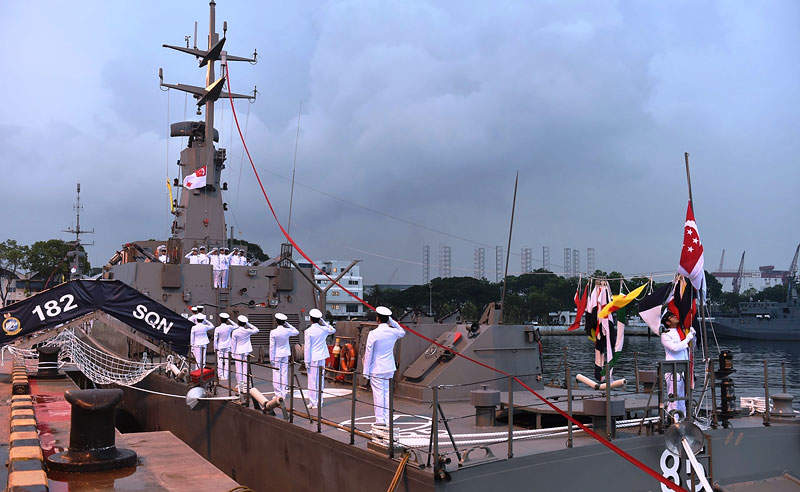
The Republic of Singapore Navy (RSN) has decommissioned three Fearless-class patrol vessels (PVs), RSS Sovereignty, RSS Unity and RSS Justice, at Tuas Naval Base.
The three vessels all started operations in 1996 and have since been replaced by the navy’s new littoral mission vessels (LMVs).
They were the RSN’s first warships to be completely designed and developed in the country.
RSS Sovereignty, RSS Unity and RSS Justice were commissioned on 7 February 1998 and served the RSN for roughly 20 years before being retired.
The PVs successfully safeguarded the country’s maritime interests and territorial integrity via a wide range of activities at sea during that period, including maritime surveillance, and patrol and escort operations.
The ships also participated in several bilateral and multilateral exercises with foreign navies.
In addition, RSS Unity acted as the naval technology evaluation ship in support of the RSN’s naval combat systems upgrades.
RSN Maritime Security Task Force commander rear admiral Alan Goh said: “Throughout their operational service, these three ships were an integral part of the RSN’s 24/7 high-readiness core and truly lived up to the PV Squadron’s motto of being ‘Sharp and Vigilant’.”
The names and operational duties of RSS Sovereignty and RSS Unity will be handed over to the new LMVs during their commissioning ceremonies later this year.
The duties of RSS Justice will be passed down to its counterpart after the new vessel is commissioned next year.
RSN’s newest LMV fleet is scheduled to be fully operational by 2020.



